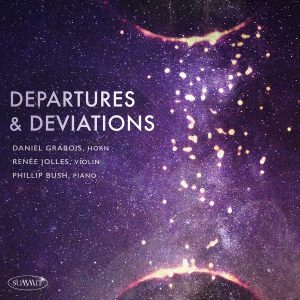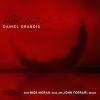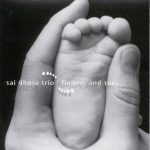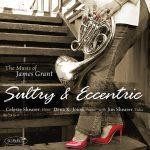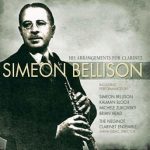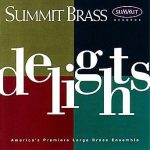Departures and Deviations – Daniel Grabois, Renée Jolles, Phillip Bush
World-class, unique instrumentation of horn, violin and piano with contemporary pieces. This CD presents four contemporary works for horn, violin, and piano. The oldest work was written in 1985, the newest in 2005 (and revised in 2013). Two of this diverse group of composers are American, one is Canadian, and one is British.
Daniel Grabois is Associate Professor of Horn at the University of Wisconsin-Madison Mead Witter School of Music. He is also a member of the Meridian Arts Ensemble, a brass quintet which he joined in 1989.
Renée Jolles is the Wegman Family Professor of Violin at the Eastman School of Music. She is also a member of the Orpheus Chamber Orchestra.
Phillip Bush is Associate Professor of Piano and Chamber Music at the University of South Carolina School of Music. He has performed around the world as a soloist and chamber musician.
“Departures and Deviations” was commissioned by the Canadian Broadcasting Corporation for James Sommerville, principal horn of the Boston Symphony. It was premiered on August 1, 2001 at the Ottawa Chamber Music Festival in a concert featuring chamber music with horn. It won the International Horn Society Prize for Composition in 2002.
Composed in 2005 and revised in 2013, “Un Abrazo Para Sharon” was written in honor and appreciation of Sharon Moe, private French horn teacher to Benjamin Grobman.
“Twilight Music” was written directly after Grabois’ first string quartet: both pieces move toward an abstract and compact way of working, in reaction to the large orchestral works that precede them.
Michael Finnissy’s “Horn Trio” features a broad muscularity in some of the writing and a contrasting tenderness in other parts. It can sound almost symphonic in range, but also presents moments of great intimacy.



